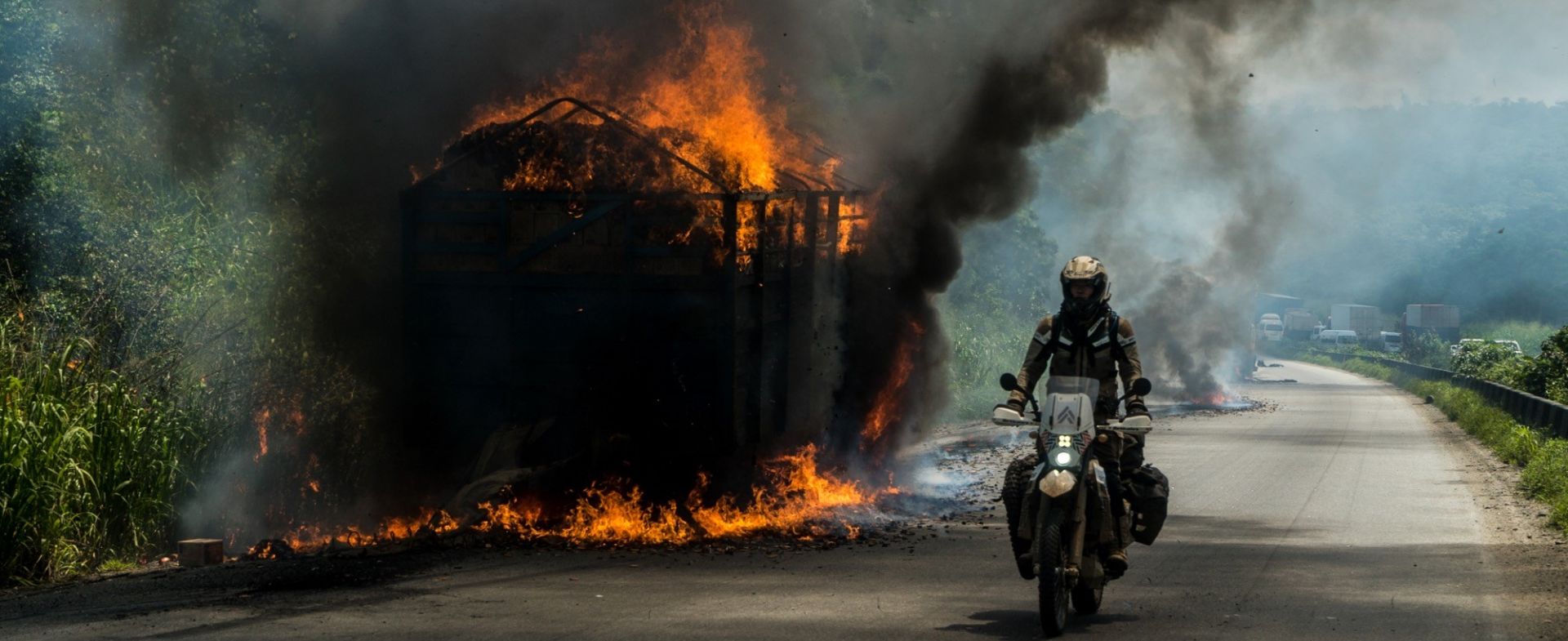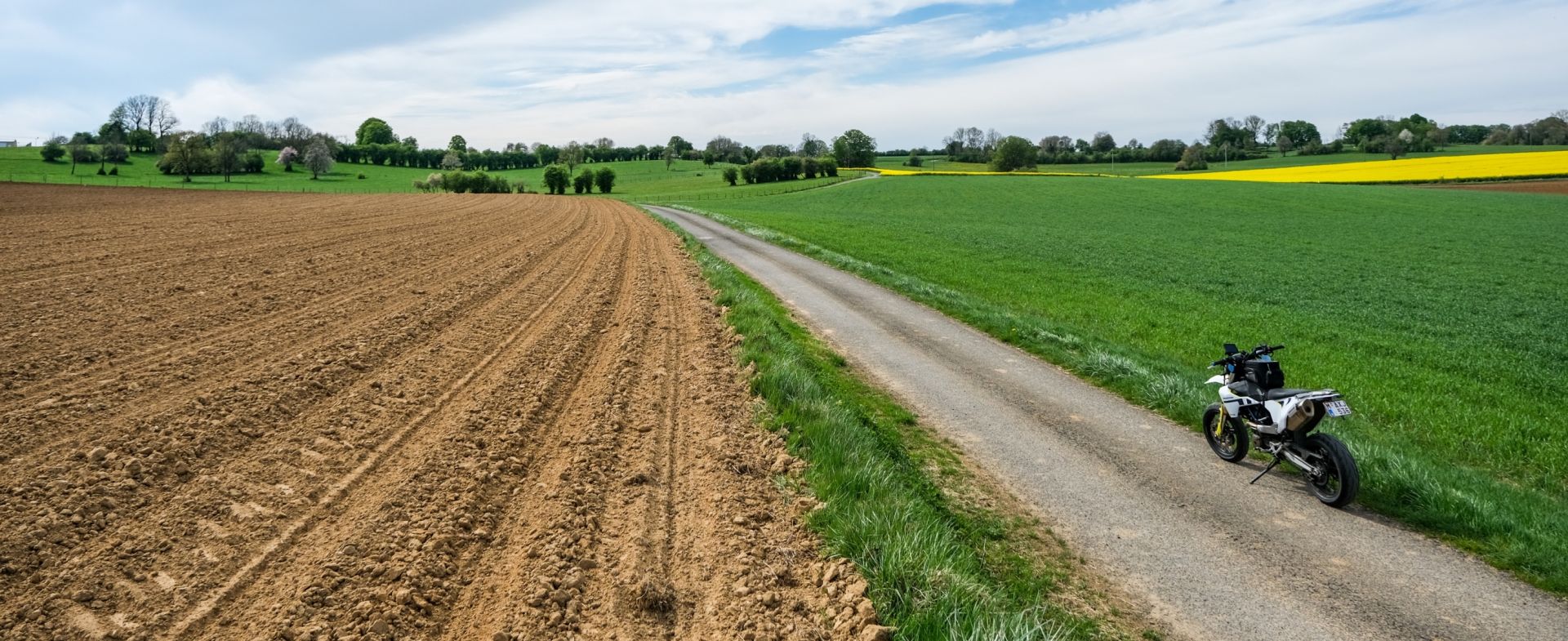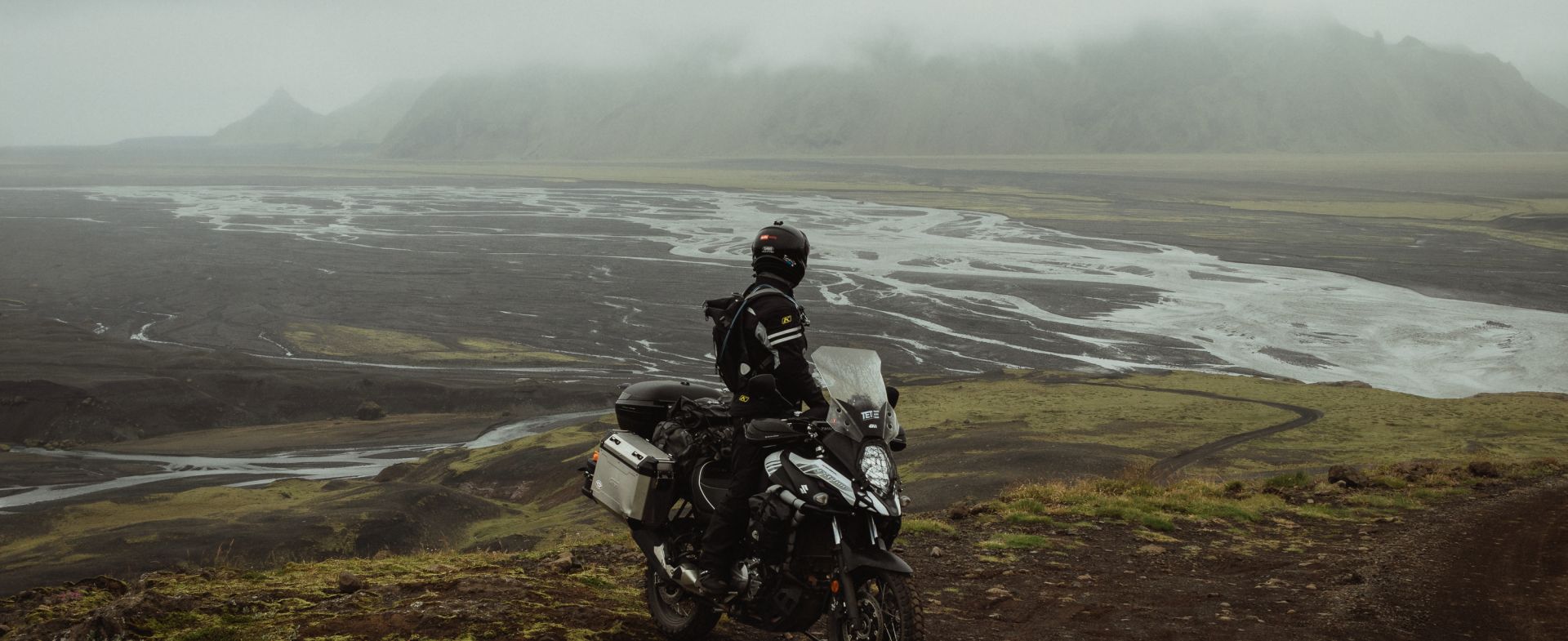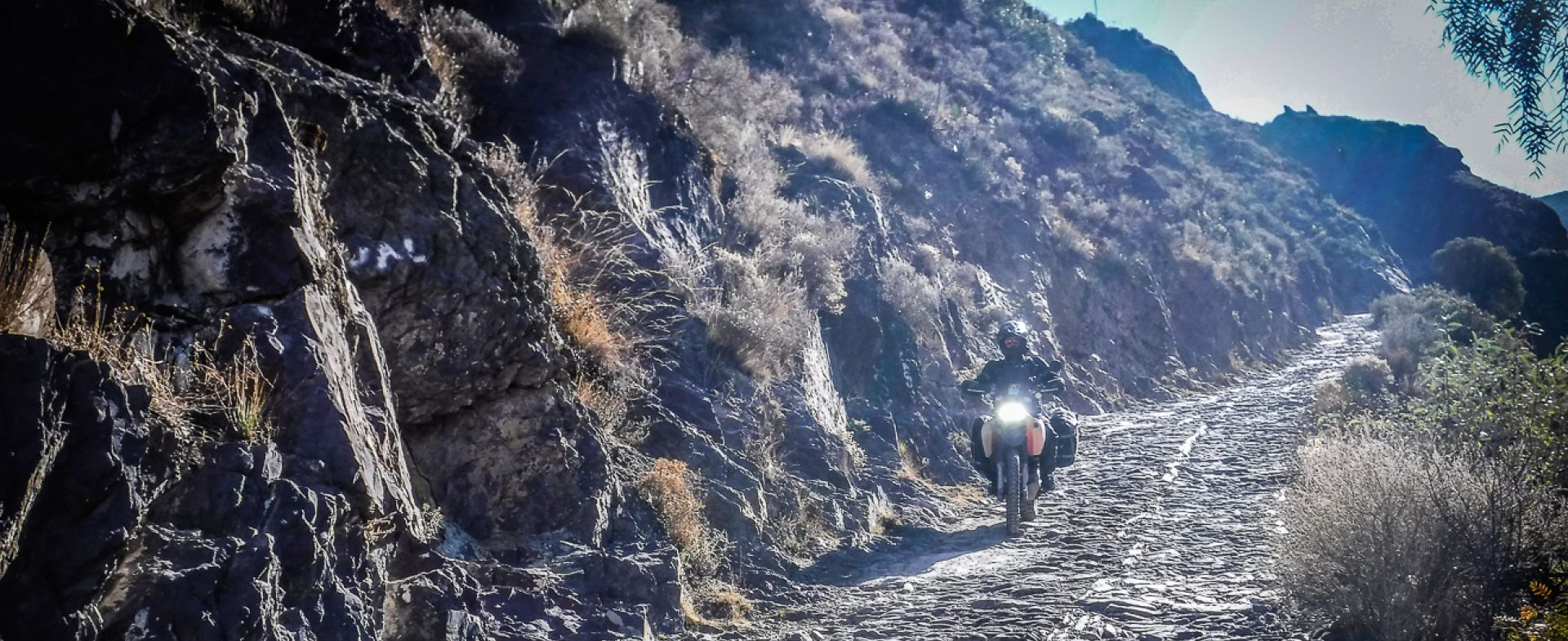Missed the first part? Check it here: Nomadik and Co: From Ireland to South Africa - Part I
Meanwhile the wet season had temporarily gone into its shell leaving behind dark, heavy, grey clouds that served to mute the usual excitement we felt when getting back on the road and replaced it with trepidation. We were moving into the heart of the adventure.
Approaching the border we were directed around back which we took to mean that we would be dealt with separately. The customs building was a cavernous structure with tight offices staffed with an excess of apathetic men and women in a variety of uniforms. One lady took the temperature in our ears to screen for ebola and then we were interrogated on the porch by another man asking many very specific questions with no way of verifying any of our answers.
He was terse without being a bully and as we readied ourselves for a long process we were then whisked into another office full of jovial border guards watching soap operas with the volume turned up way too high. Within a few minutes we were on our way without even the hint of a bribe or any trouble. And this set the tone for the remainder of our experience in Nigeria.
Lagos was a mash of humanity pushed right up to the curb and often spilling over into the road. A city of 20 million people converging on the opportunity a city offers, our experience was one of contrasts from bougie upper class bars to a vibrant and gritty music scene and youth culture at the Fela Kuti Shrine.
Like most large cities in Africa, when travelling on a motorcycle, it wasn't really our scene. For all the negative sentiment we had heard before arriving, Nigeria never treated us poorly and became one of the highlights. Perhaps that had something to do with low expectations, being able to speak english and engage with people, and the intensity of it all. Most intense of all was the traffic.






















